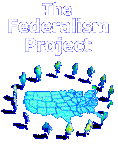|
|
The growth and integration of national and global
markets should make the world more competitive. Antitrust policy
should become less important. Instead, globalization has produced the
opposite result: a veritable antitrust proliferation.
In
the United States, the Microsoft case has dramatized the increasingly
aggressive antitrust role of state attorneys general. Abroad, more
than ninety countries and the European Union now administer
competition laws, applying sharply divergent antitrust standards to
corporate mergers and other transactions.
The
implications for consumer welfare are enormous. Hydra-headed antitrust
enforcement is producing serious problems and paradoxes:�
���������
Business firms need to comply with duplicative and often conflicting
legal standards;
���������
Extraterritorial antitrust is prone to be used for protectionist�e.g.
for anticompetitive�purposes;
Possible solutions to these problems range from
improved intergovernmental cooperation, to direct policy harmonization
(including, within the United States, federal preemption), to a new
regime of �structured competition� in antitrust policy modeled on
U.S. corporation law.
�
The
New Antitrust Paradox: Policy Proliferation in the Global Economy
In April 2003, the Federalism Project called upon leading antitrust scholars, jurists, and practitioners to explore routes to a new and better institutional design for global antitrust. The conference title consciously echoes The Antitrust Paradox (1978), Robert H. Bork�s landmark contribution to rigorous law-and-economics scholarship on antitrust policy. The same kind of scholarship, which has contributed so much to improving the substance of antitrust policy, may now provide a framework to understand the new problem of proliferating, multi-jurisdictional antitrust regulation. Keynote Addresses Judge Richard Posner: Is Federalism Overrated? Judge Diane Wood: Cooperation and Convergence in� International Antitrust: Why the Light is Still Yellow � |

